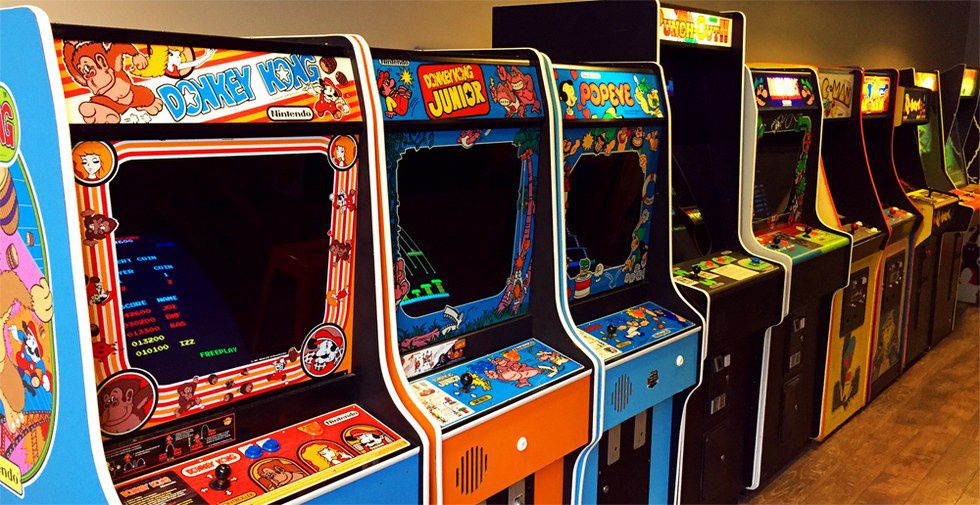The current era of video games can be traced back to the rise of one of late twentieth century America's favorite pastimes, arcade gaming. More specifically, Pong is the game that is most notable from this era. Pong was undoubtedly a large leap forward in its time. Although, it's difficult to argue that knocking a little blip from one side of the screen to the other is an artistic endeavor. To follow the evolution of gaming from simply a medium designed to eat your quarters and into a unique storytelling platform you have to look to classics such as Ms. Pac-Man, Galaga and Donkey Kong.
Donkey Kong straddles the line between pure arcade entertainment and artistic innovation unlike any other game of its time. Like Ms. Pac-Man and Galaga it is based around repeating the same task, trying to collect as many points as possible. In Ms. Pac-Man collecting involves gobbling up dots and ghosts, while in Galaga your goal is to zap as many alien ships into pixelated oblivion as possible. Where Donkey Kong innovates past these two is by giving the player, portrayed by the first incarnation of the now classic Mario, a goal in saving the games heroine, Pauline, from Donkey Kong.
This sounds so basic now, but Donkey Kong set the template for almost everything that followed it by clearly outlining the rules of what a modern video game is as well as having a philosophy all its own. It's this latter point that signals games towards the direction of a unique art form. Donkey Kong became about more than just jumping from one level to the other since it basically converted the Greek myth of Sisyphus into a replay-able pursuit designed to absorb all of your pocket change.
In the myth, Sisyphus has to spend every day of his life rolling a boulder up a hill only to watch it roll back down, completely invalidating his struggles and efforts. In Donkey Kong, Mario leaps over barrels and up platforms until he reaches the top, only to have Donkey Kong escape to the next level with Pauline. It's the same basic idea with one important difference. Mario can actually save Pauline if the player is good enough, which cannot be overstated enough since the game vicariously inserts the participant into its narrative.
This level of interactivity is what truly separates the feeling of playing a game from engaging with another form of art. The end result of the story may be set in stone like a movie or book, but the player is ultimately in charge of how they get there.
What's also pretty cool is the way games have evolved alongside our current technology, making them one of the fastest growing artistic mediums of all time. Compared in age to the 100 year old medium of film, games are still babies and compared to the ancient medium I'm engaging in right now, writing, they haven't even been born yet.
For people around the age of the average college student it's hard to imagine a time when technology wasn't prevalent in everyday life. This generation has seen computers slowly find their way into every living room in the country, the rise of cell phone ubiquity as well as the creation of social media. Games are the direct result of great artists of this time taking the available tools and combining them with past art forms to create something fun and new.
What are your favorite video games?




















